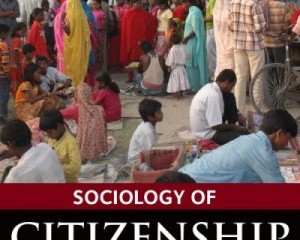
‘English Votes for English Laws’ — a viable answer to the English Question?
Last week the government published its detailed proposals for introducing English Votes for English Laws (EVEL) into the House of Commons. This is a significant moment in our constitutional history primarily because these changes reflect the acceptance of the need to institutionalise a collective English interest in the legislature, and the conviction that there is a growing and legitimate sense of grievance concerning England’s position within the UK. The primary rationale offered for introducing EVEL is to bring Westminster up to date with the implications of devolution elsewhere within the UK. In a context where further devolution is anticipated for Scotland, Wales and Northern Ireland, it is becoming harder to ignore demands that English interests be given greater consideration in parliament. The …

Rebuilding democracy in Iceland: an interview with Birgitta Jonsdottir
In the first of a series of interviews by Phil England examining the situation in Iceland and the possible relevance of developments there to the UK, Phil talks to Pirate Party MP Birgitta Jonsdottir. Birgitta Jonsdottir is a co-founder of the Icelandic Pirate Party and one of three Pirate Party MPs in the Icelandic government. Since March the Pirates have been polling as the most popular party in Iceland. Their core policies focus on direct democracy, civil rights and access to information. A former Wikileaks volunteer, Jonsdottir describes herself as an anarchist and a poetician. She is also founder and Chair of the International Modern Media Inititative (IMMI) which aims to strengthen democracy through transparency of information. Could the right to information clauses …

Digital Rights and Pornography – A child protection catch-22 or lazy policy solutions?
Our rights are being infringed more and more on every side, and the danger is that we get used to it. So I want to use the 25th anniversary for us all to do that, to take the web back into our own hands and define the web we want for the next 25 years…. “But we need our lawyers and our politicians to understand programming, to understand what can be done with a computer.[1] – Sir Tim Berners-Lee The above quote should come as no surprise to anyone with even a passing interest in digital rights. In recent times there has been growing interest by governments in how to respond to the sort of modern social problems that …

Pornography and digital rights
One of the Internet’s most awe-inducing features is its ability to serve up whatever piece of content you need, whenever you need it. Whether you’re looking for videos of cats riding Roombas, the translated poetry of Goethe or the song of a nightingale, the Internet, thanks to the incredible resources of the World Wide Web, will dish up whatever you’re after. Of course, insofar as online content mirrors our offline imperfections, it’s equally easy to find less salubrious material. As with many other technologies before it, the Internet has provided a new platform for pornographic content, and whatever your sexual predilections, you will find an ample store of online content to meet every desire. Unsurprisingly, this leads to no small …

Moving Beyond Movements: Exploring paths of everyday citizenship in urban South Africa
In the rich literature that has emerged on social movements in post-apartheid South Africa, there have been many analyses that explore the degree to which particular social movements cooperate with the state or adopt a more antagonistic stance. Some break this picture down further, exploring the degree to which movements are able to cultivate or capitalise upon unique relationships with specific state actors or departments. Those kinds of accounts remind us that the state is, in reality, a collection of individuals and institutions that are often heterogeneous and fragmented, if not in active conflict with each other. This work has helped us to gain a more nuanced understanding of South Africa’s political landscape and the nature of statehood and citizenship within it.
Less prevalent in the literature on popular politics are studies of individuals and the diverse relationships they hold with state actors and institutions as they traverse between social movements and what Raul Zibechi would call ‘societies in movement’. And yet, this focus on ideas, identity, and practice in the midst of everyday life is crucial if we are to grasp what it means to be involved in grassroots politics.

Forecasting elections with social media? Yes, we can. Almost…
With the failure of traditional forecasting methods to accurately predict the outcomes of the UK General Election of May 2015, can social media based predictions do any better? In this article, Andrea Ceron, Luigi Curini, and Stafano M. Iacus (University of Milan and VOICES from the Blogs) find that supervised and aggregated sentiment analysis (SASA) applied in proportional electoral systems produces the most accurate forecasts of election results.

Democracy for our Digital Future (Part III): The public realm, parties and the future of campaigning
The gathering heard from the historian David Marquand whose latest book Mammon’s Kingdom explores the history and values of the public realm and its relationship to democracy. The public realm is an elusive term, noted Marquand, which denotes a sphere of human life that is not the market, but not the private realm of family and friendship either. It is the belief that we are mutually inter-dependent, with perhaps the best definition given by John Donne when he noted that ‘No man is an island, entire of himself’. The public realm includes the public sector, but is not reducible to it. It is also the realm of our rights and responsibilities, which includes universal human rights, but also certain British …

Six reasons why the UK parliament should have youth quotas
Young people are disadvantaged economically yet politically marginalised and demonised. Are youth quotas in parliament part of the answer? It is now widely acknowledged that young generations are faring particularly badly in Britain.[i] There is growing concern for a ‘jilted generation’ burdened with debts and structural unemployment. In 1992, the unemployment rate of the young was twice as high as for the rest of the population; two decades later, it is up to four times higher.[ii] Even when they do have jobs, young people are disproportionately likely to be in precarious positions such as zero-hour contracts, temporary contracts and unpaid internships. Despite this context of job scarcity and the structural precariousness they have to face, the young are often regarded …









